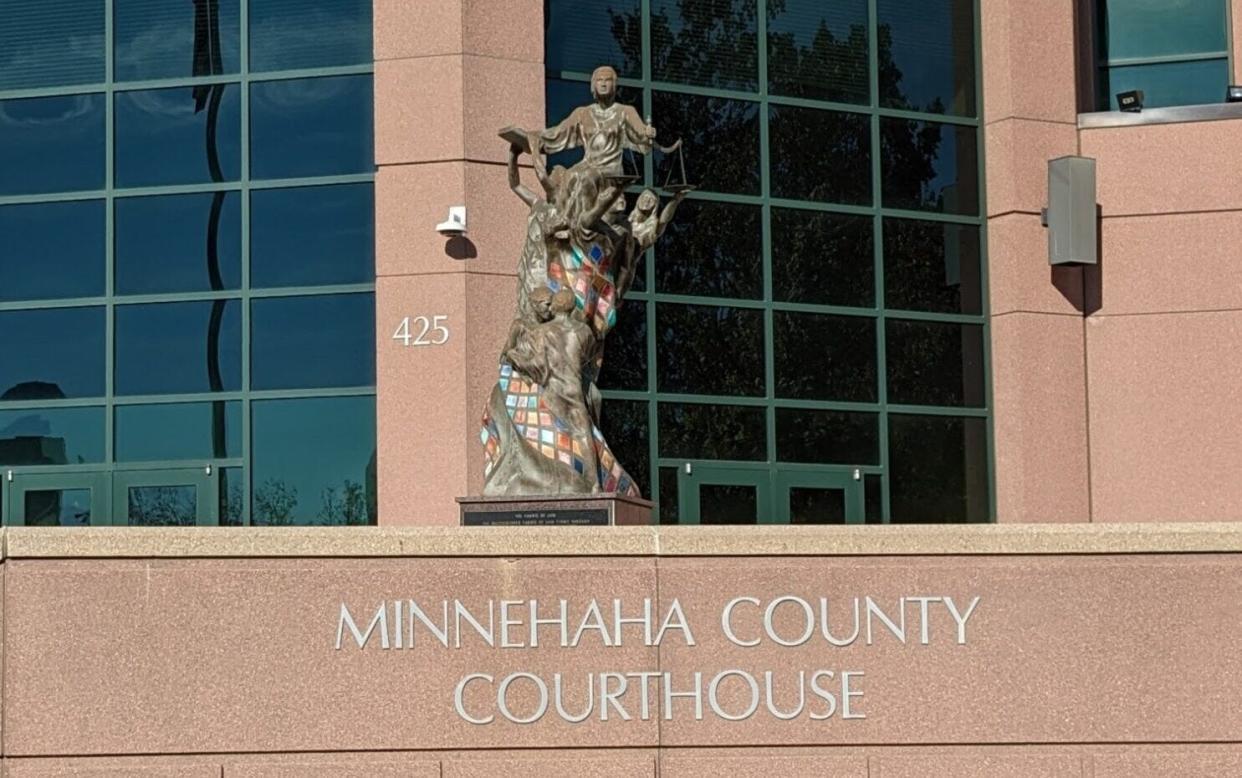Minnehaha tackles backlog of warrants, court cases with warrant resolution court pilot program

At any given time in a year, there are roughly 15,000 warrants on file in Minnehaha County, any of which could lead to an arrest. Those crimes behind those warrants range from unpaid traffic tickets to assault or homicide.
To the criminal justice system, they’re treated the same. Some are trivial in relation to larger crimes, but the backlog can clog up the system and cost taxpayer dollars, said Minnehaha County Sheriff Mike Milstead.
For those named on the warrants, failure to pay that traffic ticket can mean being thrown in jail, which could disrupt their life, stress relationships, cause job loss or create financial stress.
The recently completed pilot of a Warrant Resolution Court in Sioux Falls aims to show how counties can alleviate that stress on law enforcement and the court system.
“If we can resolve these low risk cases and still meet the needs of the victims in a cost effective and safe manner, that’s a pretty good deal,” Milstead said.
More than 170 warrants were resolved through four court dates with the pilot program over the winter.
The program let people with outstanding warrants for low-level crimes settle their warrants with the sheriff’s department after-hours at the courthouse and talk with state’s attorneys, public defenders and a judge to work out arrangements for a resolution. An interpreter was also available if needed.
Charges could include city ordinance violations, traffic violations, DUI first or second, and possession of drug paraphernalia. If someone came in for an offense that wasn’t applicable, the court still worked to move their case along in the process.
The pilot program was led by Second Circuit Judge Robin Houwman and funded by a grant from the national nonprofit MacArthur Foundation. It was the first warrant resolution court in South Dakota, according to the state Unified Judicial System.
“It allows us more time to deal with the bigger cases during the day so we can focus on the people who are in custody, the more serious cases and clients that are in jail,” said Traci Smith, public defender for Minnehaha County. “Every day that a person spends in jail, the harder it is for them to get back on track.”
However, the pilot period has come to an end and it’s unclear the program will continue.
While it’ll take a few months to track if court participants followed through on their payment schedules and court dates, the Minnehaha State’s Attorney Office had 62 pleas over the four court dates. A third saw the entire case resolved, including financial obligations.
“We’ll see ultimately what happened to those other cases, and I think that’ll determine whether it was successful or not,” said Minnehaha County State’s Attorney Daniel Haggar.
Based on the eventual review, the county could decide to continue with the program with taxpayer money. The court cost around $2,300 each night for staffing costs — whether 16 or 60 warrants were resolved — based on reimbursements from MacArthur Foundation.
In 2023, the Minnehaha County Sheriff’s Office served more than 14,000 warrants. About 1,200 of those were served through its walk-in warrants program, where people turn themselves in without posting a bond at the front office of the jail during business hours, Milstead said. The department has a searchable database for warrants online.
“Walk-in is broader and allows us to get whatever the case is scheduled right away,” Milstead said, adding that they’ll resolve warrants that include victims. “It’s a pretty effective program.”
The State’s Attorney’s Office also has an on-call attorney to help people resolve their case.
Officials see advantages in the warrant court. The existing walk-in warrant program costs the person with the warrant $25, whereas the new resolution court waived fees. People may be skeptical about whether they will be able to walk out of the jail too, Milstead added, and the walk-in program only addresses warrants. The next steps of moving a case through the system remain after the sheriff collects the $25 payment and schedules a court date.
If the warrant resolution court is deemed successful, Smith would like to see it continued and eventually expanded.
People want to do the right thing when they come to the warrant resolution court, Smith said. A permanent warrant court program would show that the criminal justice system trusts them and allows them to be accountable and live their lives without fear.
She added that it’s important to educate people about how to take care of warrants and about the importance of paying traffic tickets or any other fees.
“In order to feel part of the community, people need to have a driver’s license, feel like they can go to their kids’ school and talk to teachers, to trust the courts and to trust that they’re really looking out for their interest,” Smith said. “There’s always a fear of looking over your shoulder if you have a warrant. A simple traffic stop? You’re going to jail. If an officer recognizes you at your kid’s soccer game, are you going to jail?”
This article originally appeared on Sioux Falls Argus Leader: Minnehaha tackles backlog with warrant resolution court pilot program

